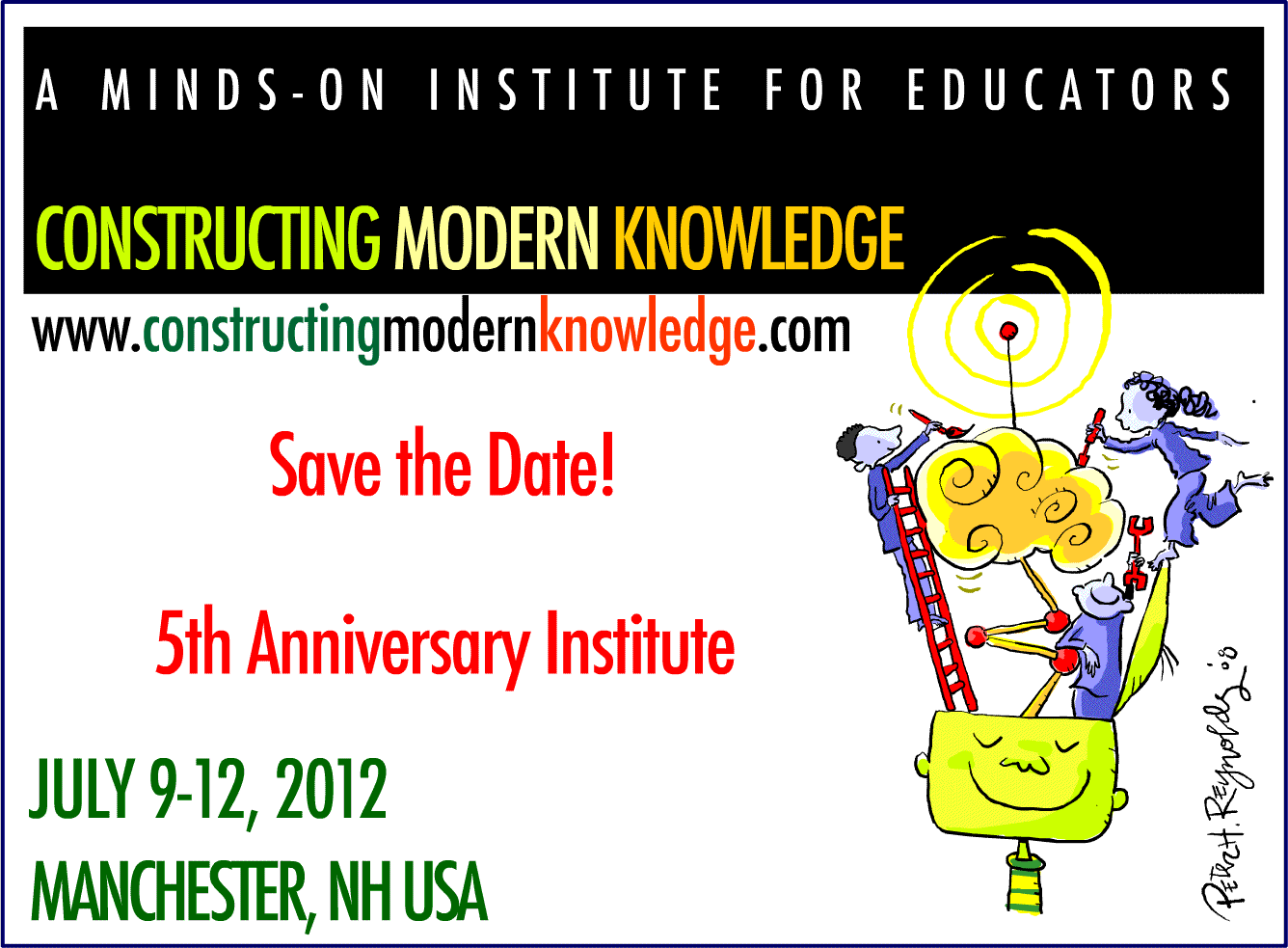The Weekly Digest for The Daily Papert (March 14-17, 2011)
“If you need to know whether drug X reduces blood-pressure, you may fairly safely draw a negative conclusion from a “treatment model” experiment in which hospitalized patients were given X and no change in blood-pressure was observed. On the other hand, you would not deduce that drug Y does not increase fertility from the simple fact that hospitalized patients who received it had no babies. You would want to know more about other conditions that are known to be necessary. Nor would you deduce that ice is a bad material for building dwellings if you heard that I tried to build an igloo in Boston in mid-summer and failed. The right environment and, I presume, a high degree of special skill are necessary. Such a failed experiment would say much more about me than about whether “igloos deliver what they promise.”
Papert, S. (1987) Computer Criticism vs. Technocentric Thinking.
A version of this piece was published as “M.I.T. Media Lab Epistemology and Learning Memo No. 1″ (November 1990). Another version appeared in Educational Researcher (vol. 16, no. I) January/February 1987.
Entry suggested by Professor Richard Noss
“For the reformists, the computer will not abolish schools but will serve them. The computer is seen as an engine that can be harnessed to existing structures in order to solve, in local and incremental measures, the problems that face schools as they exist today. The reformist is no more inclined than the revolutionary to think in terms of reconceptualizing subject domains. Our philosophy, both implicit and explicit, tries to avoid the two common traps: commitment to technological inevitability and commitment to strategies of incremental change. The technology itself will not draw us forward in any direction I can believe in either educationally or socially. The price of the education community’s reactive posture will be educational mediocrity and social rigidity. And experimenting with incremental changes will not even put us in a position to understand where the technology is leading. My own philosophy is revolutionary rather than reformist in its concept of change. But the revolution I envision is of ideas, not of technology. It consists of new understandings of specific subject domains and in new understandings of the process of learning itself. It consists of a new and much more ambitious setting of the sights of educational aspiration.”
Papert, S. (1981) Mindstorms: Children, Computers and Powerful Ideas. NY: Basic Books. Chapter 8 – “Images of a Learning Society.”
Purchase Mindstorms: Children, Computers and Powerful Ideas.
“I am talking about a revolution in ideas that is no more reducible to technologies than physics and molecular biology are reducible to the technological tools used in the laboratories or poetry to the printing press. In my vision, technology has two roles. One is heuristic: The computer presence has catalyzed the emergence of ideas. The other is instrumental: The computer will carry ideas into a world larger than the research centers where they have incubated up to now.”
Papert, S. (1981) Mindstorms: Children, Computers and Powerful Ideas. NY: Basic Books. Chapter 8 – “Images of a Learning Society.”
Purchase Mindstorms: Children, Computers and Powerful Ideas.
“The girl who said to her teacher “I want to do that” and the first grader who said to the third grader “show me how to do that” are just two out of hundreds of documented examples of children refusing the “infantalization” inherent in most contemporary schooling. These children refused to do what children are supposed to do. Nothing enrages me more than when people criticize my criticism of school by telling me that schools are not just places to learn maths and spelling, they are places where children learn a vaguely defined thing called socialization.”
Papert, S. (1982) Tomorrow’s Classrooms?. In Times Educational Supplement March 5, 1982 (pp. 31-32,41)
| REGISTRATION NOW OPEN! Constructing Modern Knowledge 2011 promises to be even better than the past three annual institutes. 
Click here to learn about previous events. Subscribe to be kept up-to-date on CMK 2011 news & speakers |